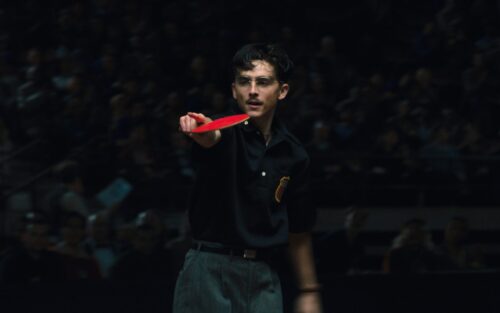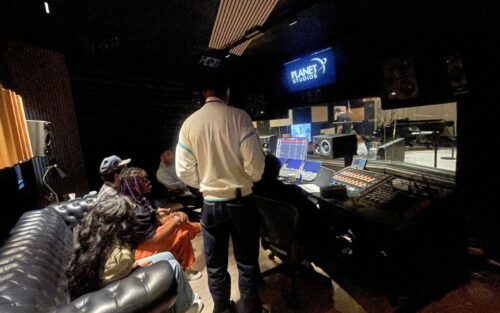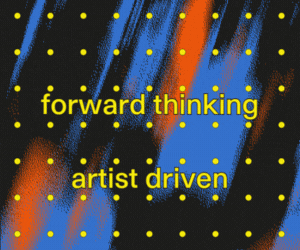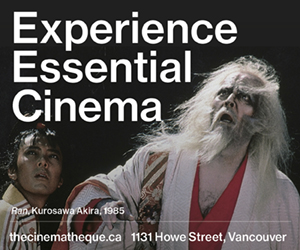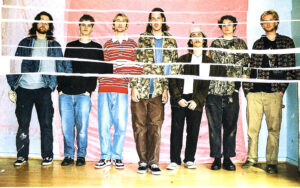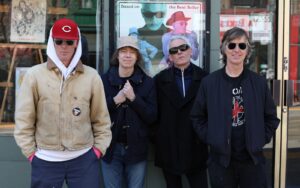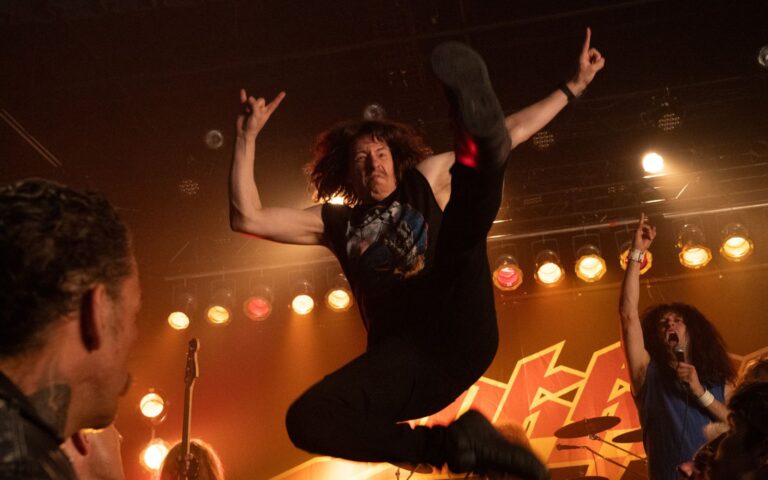
Deaner '89: The Govern’r of Givin’r Returns
Hilarious headbanger Paul Spence talks about the duality of his own rock and roll story.
by Stephan Boissonneault
- Published on
There’s a certain Albertan mentality that Paul Spence, a Canadian cult icon known for his work as The Deaner in the celebrated FUBAR film franchise, has followed since his early beginnings. “Given’r” — a mantra of sorts and a way of life that can be summed up as “going balls to the wall” or just going for it — was always something Spence strived to do.
Growing up as a regular dude from Calgary, he played hockey — pretty well he might add — and out of high school bounced between playing music in different bands, always looking for a shot at fame. Under his powerful mantra of given’r, he decided to move his punk band, The Infernos, all the way to Montreal to make a name for themselves. But that dream fizzled out after a few of the members got “fed up with being broke and shipped off back to Calgary.”
The story then becomes a piece of forgotten Canadian ‘90s punk rock history. After the flame of The Infernos extinguished, Spence admits he was feeling a bit down, but wasn’t ready to give up. He was at a bar somewhere in Montreal and happened to meet The Spaceshits, a punk group that would eventually become King Khan & the BBQ Show. This was in the mid to late ‘90s, before FUBAR.
“I just went up to them and said ‘Hey guys, this is cool,’ and we ended up playing pool all night,” Spence says over Zoom, rocking his iconic mustache. “I think The Devil Dogs was playing on the speakers and I started singing along and The Spaceshits guys were impressed.” To make a blurry and long story short, Spence went on to form a different band with one of The Spaceshits’ brothers called Lyle Sheraton and the Daylight Lovers, which also disbanded after Spence had to go back to Calgary to do FUBAR.
After filming, Spence returned to Montreal and joined The Gangbangs, who eventually renamed themselves the CPC Gangbangs, released one full-length album called Mutilation Nation, and went down as a legendary punk band that is still talked about by the true heads of Montreal’s punk scene.
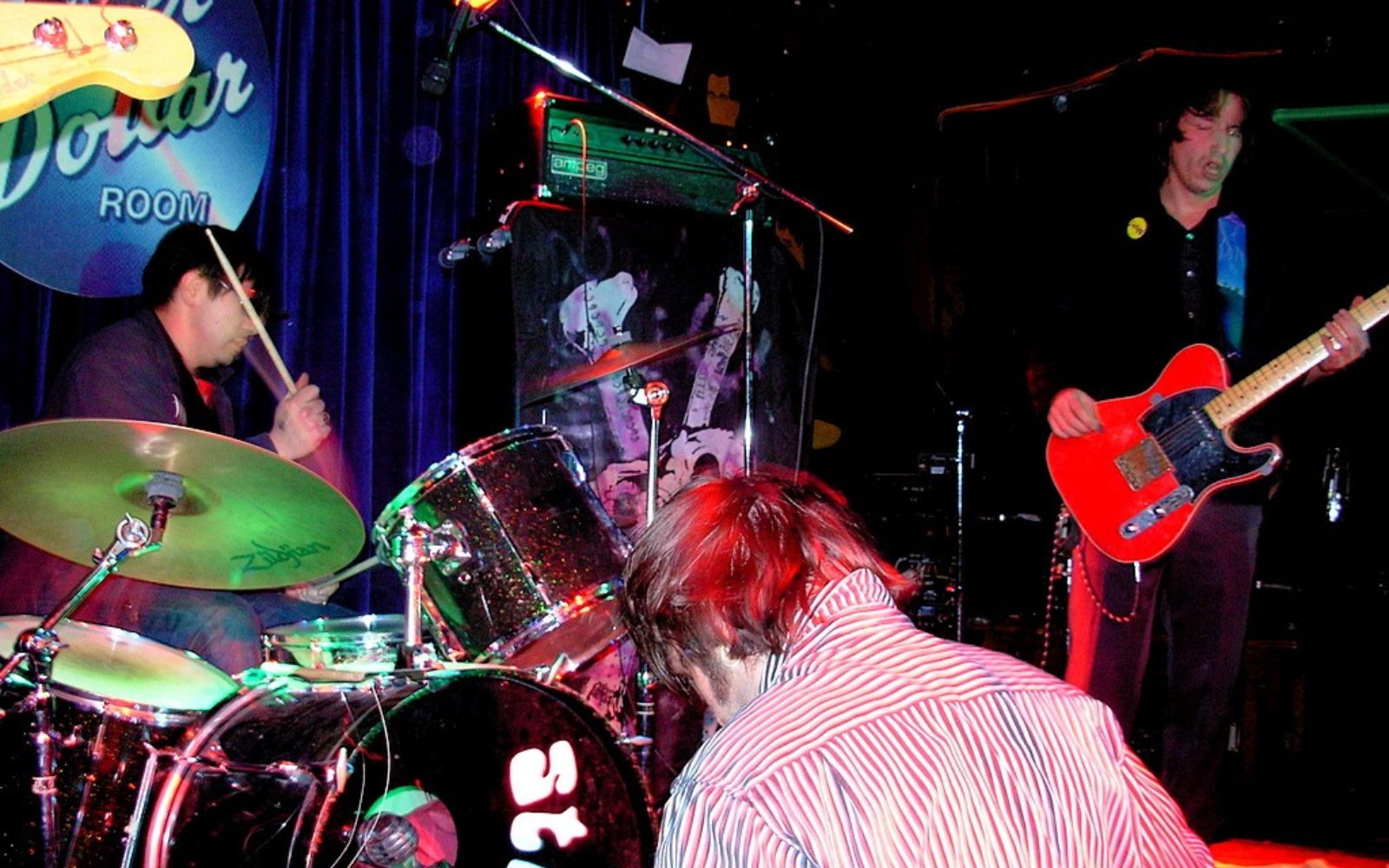
CPC Gangbangs performing at the Silver Dollar in Toronto, ON (2007).
“Looking back on that time now is funny,” Spence says. “There was so much nihilism, and self-destructive behaviour, not just in the band, but in the scene. I’m the type of person who will throw myself off a second-story balcony to get laughs, you know what I mean, right? Just to be the centre of attention. And I was doing that like every second or third weekend.”
This real-life punk rock origin story of Spence inspired some of the motifs in the script for his new upcoming movie, Deaner ‘89. There’s still a metric fuck tonne of given’r and shotgunning beers, only instead of punk rock, it’s heavy metal. It resides in the same space as films like Tenacious D in The Pick of Destiny or This Is Spinal Tap, but with a lot of Canadian heart.

Spence, who writes and stars as lovable headbanging Deaner, now successful with a mansion, says writing the script was exciting because the upbringing of the Governor of Given’r was a “blank slate.”
“I could basically do whatever I wanted. So it was like ‘OK, the origin of shotgunning beers, where did the metal come from?’” Spence says. “You don’t just burst out of Zeus’ head like Athena in full battle armour y’know? So it was fun looking back at being a teenager myself and talking to people about their experiences discovering music.”
In the film, the Deaner’s discovery of heavy metal in ‘89 is a bit more deadly than your average person. When a literal treasure chest arrives filled with his father’s favourite metal albums, his old headbanger t-shirts, and a ticket to see the real-life hair metal band, Dokken, in Calgary, Dean Murdoch’s small-town hockey prairie life is changed forever.
Much like Spence’s real-life sojourn to Montreal, The Deaner decides to truly give’r. The unearthing of his dad’s past leads him to wrestle with the decision to leave his town, hockey, his girlfriend Kitty (Maddy Foley), and ultimately his sheltered life behind.

“I think that, to me, that was sort of the biggest question. How do you make that part seem realistic?” Spence says. “Was he gonna go play hockey, or was he gonna pursue a sort of big question mark of rock and roll? He probably thought he was going to go see this concert in Calgary and come back, but he never did, I think that’s a cool part of his story. Who knows, maybe we’ll investigate what happened between then and the rest of the story.”
There’s also Dean’s dad’s old leather jacket, featuring an infinity symbol patch, the universal sign of the prideful Métis.
“I only discovered that I am actually Métis somewhat recently,” Spence says. “My dad was always referred to as ‘Indian’ when he grew up in Northern Saskatchewan in the ‘40s and ‘50s, so that’s why that backstory made it into the film.”
With this knowledge, when he was writing Deaner ‘89, Spence knew what needed to happen in the film’s universe. There needed to be physical comedy, stunts, metal, and ridiculous Canadian Eh? one-liners, but he also wanted to shine a light on a part of Canada’s dark history. That is the whitewashing of Indigenous people and the instilling of generational trauma by taking Indigenous kids and dropping them into white Canadian families. It’s something the film touches on through the character of Deaner, but also with his sister Jen (Star Slade) and his adoptive parents Glen (Will Sasso) and Mirna (Lauren Cochrane), the latter being characters who would rather have their children forget their Indigenous heritage altogether.

It’s an aspect that separates Deaner ‘89 from your classic rag-tag comedy movie and actually has something to say with its hilarious, absurdist heavy metal paintbrush.
“I think it’s on the onus of people like me, artists who focus on comedy, to make people aware of this very clear decision by the government in the late 1800s to mid-1970s,” Spence says. “If more people in general society can be aware of that, I think it will sort of sensitize people to help each other.”
By Glenn Alderson
A deep-listening session reveals how Apple Music’s sonic innovation reshapes the way we hear.
By Cam Delisle
Dominic Weintraub and Hugo Williams take audiences on a treadmill-fueled ride through the chaos and hope of modern life.

